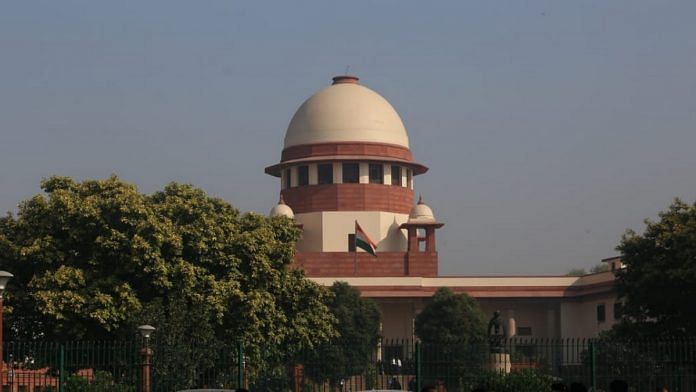Two separate events, but both closely connected to the deeply polarising strain of religion, are unfolding in Delhi these days. The first is the campaign for the Delhi assembly election, and the second is the hearing by a nine-judge Constitution bench in the Sabarimala temple case.
At the heart of both the issues is a big question: Has Article 25, which deals with freedom of conscience and free profession, practice and propagation of religion, outlived its utility? More importantly, can the Supreme Court of India continue to try and find common ground, one that would be acceptable to all sections of society, in matters as divisive and polarising as religion and politics at a time when secularism itself is under severe stress?
A Constitution bench of the Supreme Court had on 25 October 2016 ruled that politicians could not seek votes in the name of religion or caste. But the ongoing election campaign in Delhi has seen the ruling Bharatiya Janata Party (BJP) brazenly try to polarise voters, showing little respect for the Supreme Court judgment.
Minister of State for Finance Anurag Thakur recently came under severe criticism for his hate speech at an election rally in Delhi. Thakur led people into chanting “Desh ke gaddaron ko, goli maaro saalon ko (shoot the traitors)”.
A matter of faith
By delving into the vexed issue of whether women of menstruating age can enter into the sanctum sanctorum of the Sabarimala temple, the Supreme Court is now forced to find a way out, one that will also bring into question similar practices in other religions.
And that, I fear, will only add to the problem without resolving the current one.
Also read: No more riots. In Modi and Amit Shah’s new India shooters are becoming the norm
Constitution vs religion
In a deeply religious country like India, whenever there’s a tussle between Constitution and religion, the latter will always find a way to trump the former.
The stated purpose of Article 25 is to provide for “social welfare and reform or the throwing open of Hindu religious institutions of a public character to all classes and sections of Hindus”. This is going to be called into question, especially with a political party that firmly agrees with the idea of India being a Hindu Rashtra at the helm.
Is it then time for the Supreme Court to strike down Article 25 since it seems unlikely to be enforced the way the Constitution framers had thought?
If this were to happen, then both the political class and the Supreme Court will have to share the blame. There are many who strongly believe that Justice Indu Malhotra’s dissenting judgment in the Sabarimala case should have been the majority opinion. However, the majority held that all persons, irrespective of their gender, including women in the menstruating age group, should be allowed entry into the temple.
Justice Malhotra did warn us of the perils of the Supreme Court deciding which religious practices should be struck down, adding that notions of rationality couldn’t be brought into matters of religion.
Unfortunately, she was the lone dissenting voice in that five-judge bench.
Also read: Hate speech, 3 shootings in 4 days: Is EC losing its authority in Delhi election?
Over to Delhi
It does not matter who wins on 11 February because the ongoing campaign for Delhi election has been one of the most poisonous, hate-filled and divisive ones in recent memory. And the BJP is largely responsible for ignoring every rule in the book in its blatant lust to come to power in the national capital.
Another area of concern that has emerged in the run-up to the Delhi election is the role of the Election Commission. The poll watchdog’s inaction against various incidents of hate speech calling for violence – either because of the absence of adequate powers or because it simply chose to look the other way – has once again highlighted its ineffectiveness in dealing with misuse of religion in electoral politics.
The EC’s abilities to intervene and take action against repeated instances of BJP leaders making statements clearly aimed at creating a wedge between communities will remain unanswered long after the election in Delhi is over.
But unless the Supreme Court intervenes – and this is indeed an issue where the Supreme Court must intervene – to lay down fresh and clear-cut ground rules, we will soon realise that Delhi was just the beginning.
Indian secularism and the effectiveness of our constitutional values are under test – both in the Sabarimala temple case and the Delhi election. And once again, it is for the Supreme Court to show the way forward.
The author is a senior journalist. Views are personal.



